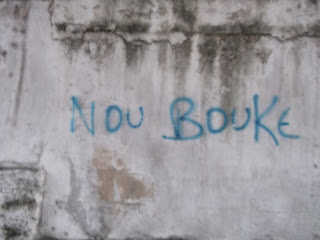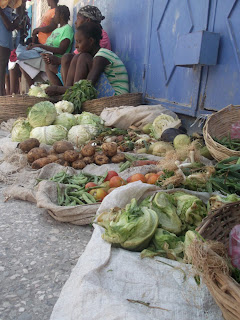
Kòman yon moun ta panse yon jen ti fi ap viv nan pwostitisyon, men ki lòt opsyon ki genyen pou sitiyasyon lap viv la? Eske se li menm vrèman kap chwazi mod vi sa ?
Depi apre tranbleman de tè a , lavi timoun de 13, 14 zan jiska plis, vin pi dejenere an ayiti. De no jou jen ti fi yo ap viv nan kondisyon ki an deyò sosyete a, bonè konsa li reskonsab bay tèt li tout sa li gen bezwen swa manman ou byen papa mouri kite. Timoun sa pa gen yon paran ranplasan ki reskonsab li, ni pou li ta sou siveyans moun sa. Timoun sa pa gen posiblite pou ale lekol menm jan ak tout lot ki gen paran, tankou pou li ta privilejye dwa li ki vyole nan sosyete a ki se dwa a l edikasyon, sante, lojman tout sal gen bezwen pou li ta viv byen nan sosyete a menm jan ak tout lot moun.
Ti fi sa leve chak maten ap reflechi kisa poul fe nan sitiyasyon lap viv la, kote genyen ladan yo ki pa gen kote pou abite, chak jou yo domi yon kote diferan kay zanmi. Nan reflechi kisa pou l fe li al kanpe sou trotwa la ri a se konsa yon mesye pwopoze li tout l gen bezwen pou l viv, swa yon ane lekol oubyen anfeme kay pou li rete nenpot lot bagay kelkonk ki primodyalite vi li nan moman an. Men , li oblije dako kouche ak neg sa. Depi lè a li di tet li konsa “Mwen ka fe ti kob mwen konsa ak sa bondye ban mwen an, m ka viv konsa map pran lari a chak le m gen bezwen.’’
Nan chita pale ak kek ladan yo, ki dim yo ta renmen chanje mod vi sa, bay vi yo yon lot direksyon men helas! Pa genyen mwayen pou l retire tet li. De grenn je leta ap founi gade jan lavi jenes la ap depafini, dwa yo vyole nan peyi a leta fe kom si yo bliye deklarasyon sou dwa tout kretyen vivan. Ki espwa timoun sa yo kap grandi nan pwostitisyon konsa?
Map poze tet mwen kesyon, kot avni jenes la ye ki tounen trafik seksyel, byen ke genyen ki ta vle kite sa men yo pa gen lot opsyon?
Ajan Fontamara/kan Site Charit 1
....................................................
A few words on prostitution in HaitiYou may think any number of things about a young girl living in prostitution, but what other option does she really have given the situation she's living in? Is it really her choice to enter into this life?
Since the earthquake, the lives of young girls 13, 14 years old and up have gotten far worse in Haiti. Young girls are living on the outskirts of society, too early they are forced to be responsible for themselves. Having lost their mothers or fathers in the earthquake, these girls often have nobody else to take care of them or look after them. They do not have the opportunity to go to school like other children whose parents are still living. These girls suffer from all sorts of violations of their rights, like the right to education, health, housing, the right to everything they may need to live well in society the same way as all others.
A young girl wakes up each morning to think about what she can possibly do given the situaition she’s living in. She may be one of many that do not have a place to live and are forced to sleep in a different place each night, at a different friend’s house each day. While she is out during the day, with all of this on her mind, she may meet a guy who offers her everything she might need to live – be it a year of school fees, or a house to live in, or any other basic need she may have at the moment - but she would need to agree to sleep with him. In the moment, she may say to herself ‘I can make ends meet like this with what god has given me, I can find a solution to my needs on the street.’
As I have sat and talked with some of these girls, many of them have told me they want to change how they are living, take a new direction. But alas, what means do they have to get out? If the state could only see how youth are really living, the way their rights are violated in this country. It is as it the government has forgotten all the declarations of rights that are supposed to govern how we live. What hope do these young girls have that are growing up in prostitution?
I ask myself, what future do these young girls have? What is ahead for those caught up in sexual trafficking, especially those who want out but have no way to leave?
Agent from Fontamara/ Site Charit 1 Camp
















